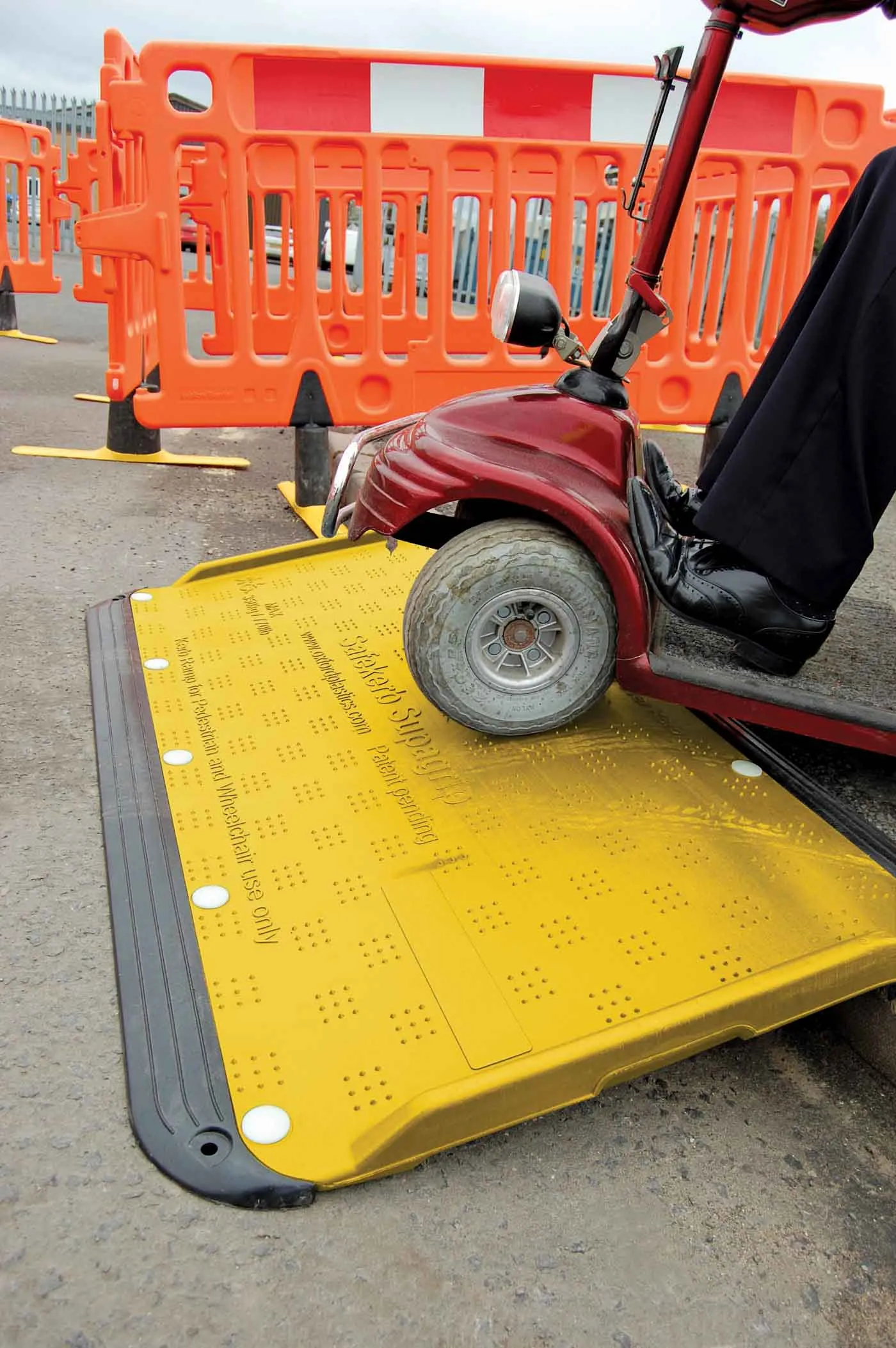Oxford Plastics says that its SafeKerb ramp units exceed the requirements of wheelchair guidelines and disability legislation. The Safekerb SupaGrip products provide a safe means for wheelchair and pushchair users to go up or down a kerb or step. These units can be used when a footpath is closed for utility works.
This innovative product has been designed by market-leading UK manufacturer Oxford Plastics to comply with and exceed the requirements of the Wheel Chair Boarding Ramp Specification, the Safet
March 9, 2016
Read time: 2 mins

This innovative product has been designed by market-leading UK manufacturer Oxford Plastics to comply with and exceed the requirements of the Wheel Chair Boarding Ramp Specification, the Safety at Streetworks Code of Practice and the Disability Discrimination Act.
The new kerb ramp weighs just 8.75kg, making it easy to lift into place, and is now able to support an increased weight of up to 350kg. It can be adapted to varying kerb or step heights, from 60-160mm.
The main body of the improved kerb ramp is made from high-density polyethylene (HDPE) and includes a heavy leading edge made from PVC on both the pavement and road side.
The SafeKerb SupaGrip also has an effective anti-slip surface and raised sides for additional safety, and does not need pinning, although it can be bolted down if required. Its improved ground adhesion makes it even safer than the original version. The product also stacks neatly for easy transport and storage.








